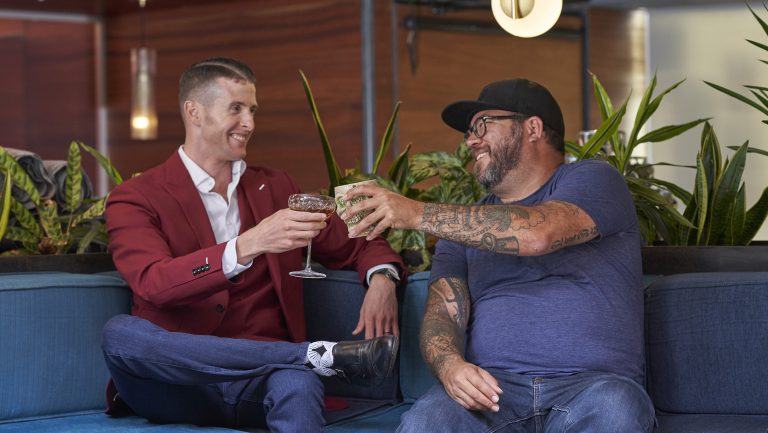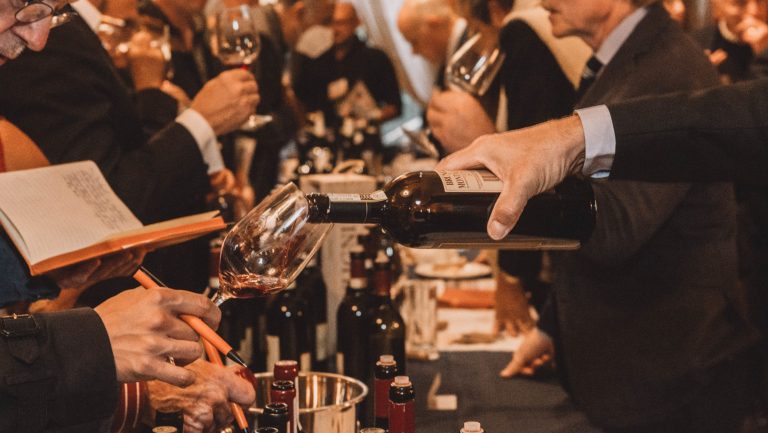In his insightful keynote address, “Celebrate, Motivate, and Simplify,” delivered at BevCon 2018 in Los Angeles earlier this week, Bobby Stuckey, MS, the co-owner of Frasca Food and Wine and Pizzeria Locale in Boulder, Colorado, Tavernetta in Denver, and the wine label Scarpetta, extolled the many reasons he loves the food and beverage industry. Even after nearly 30 years, he says, he “wakes up every day feeling blessed to be part of it.” The seasoned hospitality veteran praised the virtues of the industry yet soberly critiqued its shortcomings. With a mixture of pride, concern, and a fervent desire to effect positive change, Stuckey spoke candidly about what makes the industry special, what makes it tough, and what we can do to change it for the better.
“I think it’s one of the most special industries for a myriad of reasons,” Stuckey says. For one, it takes people who have no experience and lets them work at a craft. It also takes people who need a second chance, such as those with a criminal record, and effectively gives them a reset button on their lives. And even if you come from another country and barely speak English, he says, you can go from being a dishwasher to a sommelier or an executive chef—all just from hard work. As he points out, that doesn’t happen in industries like banking, finance, or medicine.
Tackling Challenges Head-on
While Stuckey is a champion for the F&B industry and says that it’s improved in many ways since he started his career as a back waiter in 1985, he emphasizes that there’s still a lot of work to do. “There are some things that we’re doing to ourselves,” he says, “that are preventing growth in our industry, and it’s really holding us back.”

Don’t miss the latest drinks industry news and insights. Sign up for our award-winning newsletters and get insider intel, resources, and trends delivered to your inbox every week.
He points out that the industry is losing employees who have potential but who can’t sustain themselves within it long enough to see their passion for it fully realized. “People are not staying long enough to [become] great,” he says. “Some are not even getting to be good.” He also concedes that there are some things in the industry that “are tough [and] that we can’t fix.” For example, he points to the long hours, the countless night shifts, the impediment to a healthy social life, and high levels of stress as challenges that come with the territory. But he insists that there are other aspects of the industry that we do have the power to change.
Throughout his address, Stuckey touched on his disappointment with contemporary food journalism, burning the candle at both ends, longevity in the business, the need for balance at work and in life, and how to look at the long game. But perhaps the most important part of his thought-provoking talk were the three simple points he made about being an agent of change in the industry and striving toward balance and greatness.
1. Start with humility.
“There’s no way you can be great in this industry unless you’re humble,” Stuckey says. “You need to have humility to learn, to take advice, and to grow.” As an example, he cites his own journey to his MS certification, saying that he failed portions of the notoriously difficult exam six times over the course of a decade before finally passing in full in 2004.
“I don’t need the pin,” he says. “But I love the pin because I love the journey [it represents] and how much humility was bestowed on me just by getting flogged to death for 10 years.” He also often thinks about humility with regard to his employees at Frasca, and the domino effect of how humility, if they possess it, influences so many things to work out much better.
2. Edit the extraneous.
Stuckey says that no one goes to culinary school, completes a hotel-restaurant management program, or pursues wine education and says, “I just want to get out and be average.” He himself says he strives for excellence every day. But to be excellent, he says, “you need to push yourself to an uncomfortable level.”
In 1998, Stuckey began experimenting with going out only one night a week—and only on nights when he didn’t have to work the next day. By the end of that year, he’d passed the Court of Master Sommeliers Advanced Exam, and as he puts it, he was “having the best career ever.” From that point on, he decided he was going to avoid going out on work nights (since mid-1999, he’s gone out after work only three times). While this might be extreme for some people, Stuckey encourages those in the industry to do a modified version of it, limiting late nights out after work. “You might miss out on some things,” he says, “but that’s okay.” The upside is that you feel better and you’re not burning the candle at both ends. He likens it to pruning in viticulture: “You cut [some] things back so other things can grow really well.”
3. Pursue outside perspectives.
Stuckey’s final bit of advice is to embrace people and activities outside the F&B industry. “If we just hang out with our own people,” he says, “we don’t get [enough] outside stimuli.” In addition to being a marathon runner and running twice a week with a diverse group of people (there’s only one other restaurateur in his running group), Stuckey says he makes an effort to read something each week that has nothing to do with the F&B industry. He says that’s due to his wife’s influence—she “forces” him to read up on subjects like music, as well as some he’s not entirely comfortable with, like fashion and art, which has helped make him more well rounded.
To help promote this pursuit among his staff, the restaurant Frasca has instituted a program in which someone from outside the F&B industry comes to talk to the management staff once a quarter. “It could be a used-car salesman,” Stuckey says. “Or someone who has a clothing retail store, a developer—we brought in a lady who manages apartment buildings. It’s amazing for them to talk to our management staff and [to see] what can come out of that.”
Finally, Stuckey suggests we in the industry should take a cue from our love of craft cocktails, craft beer, and craft coffee and focus more earnestly on “crafting” ourselves. “We can start moving toward excellence today,” he says, “by being humble, editing out the extraneous, and seeking outside influences for ourselves.”

Dispatch
Sign up for our award-winning newsletter
Don’t miss the latest drinks industry news and insights—delivered to your inbox every week.
Jen Laskey is the former executive editor of SevenFifty Daily. She is also an award-winning wine, spirits, and lifestyle writer and editor based in New York City, an associate judge for the IWSC, and a WSET-certified advanced somm and Diploma candidate.







